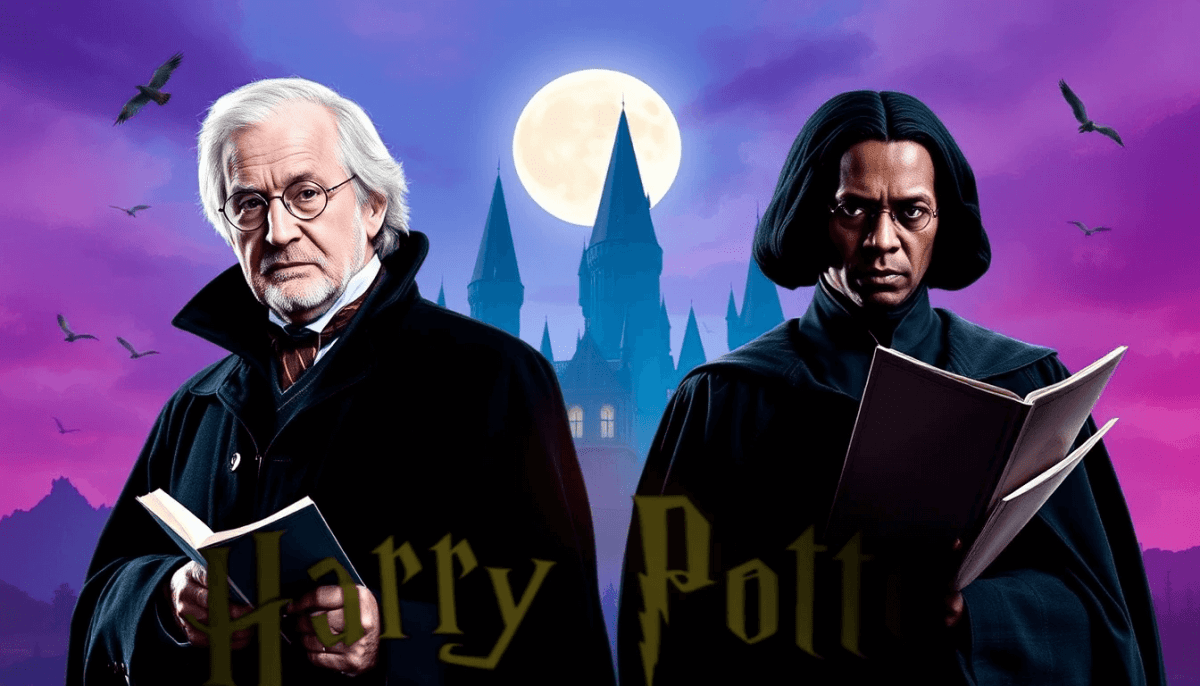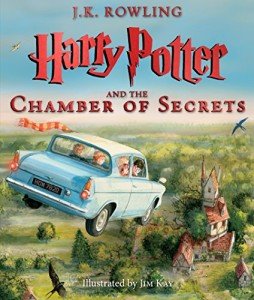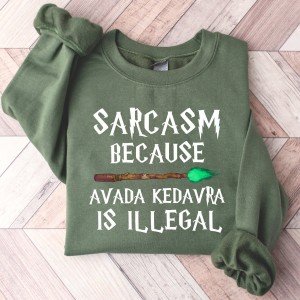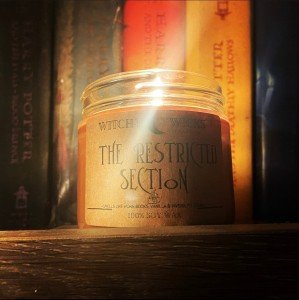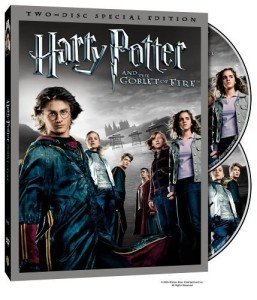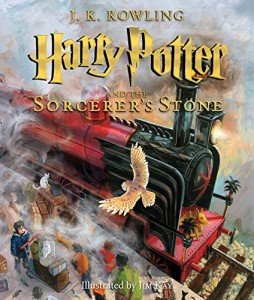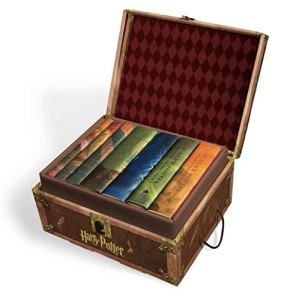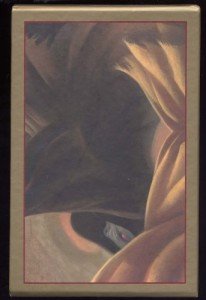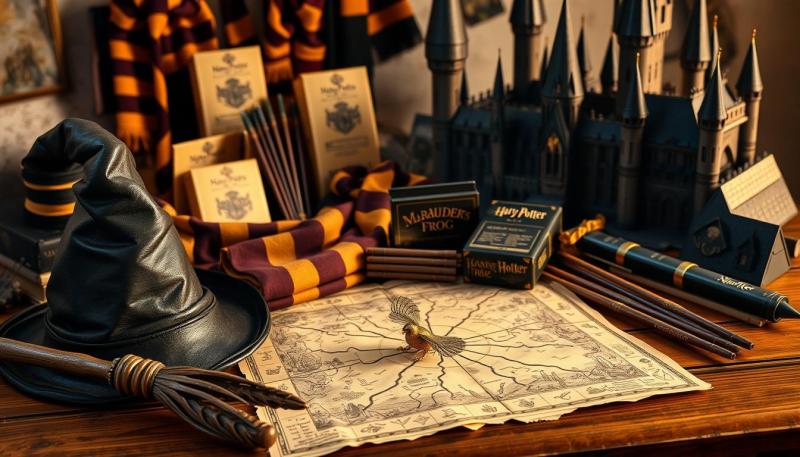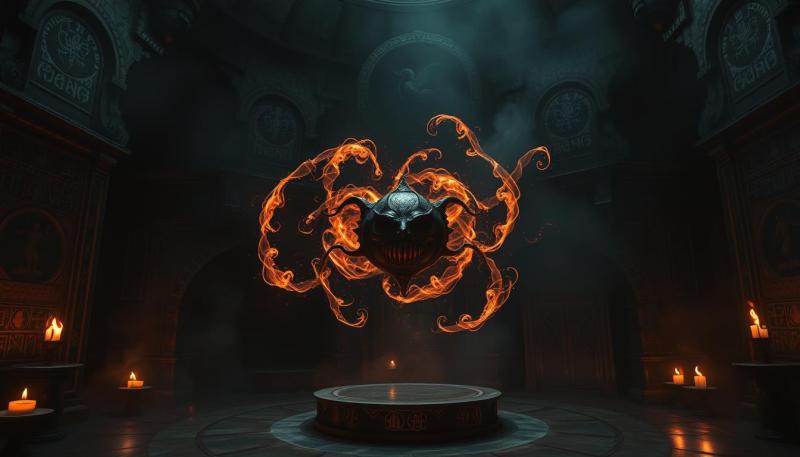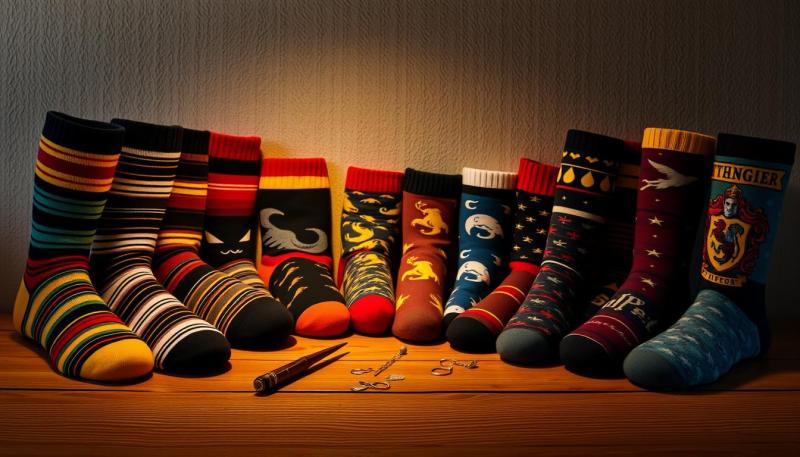The Harry Potter TV series has captured the attention of fans worldwide, generating buzz about its potential to expand on the beloved magical universe. Chris Columbus, director of the first two films, offers valuable insights into this new adaptation. You might remember his work on "Philosopher's Stone" and "Chamber of Secrets" - those early films that brought J.K. Rowling's world to life.
Columbus appears genuinely excited about the TV format, viewing it as a chance to include elements that couldn't fit into the movies. Characters like Peeves the poltergeist, who was filmed but cut from the original movies, might finally get their screen time. The series also faces interesting creative decisions regarding music, visual effects, and casting choices. While fans speculate about actors like Cillian Murphy potentially playing Voldemort, the real challenge lies in creating a show that appeals to both longtime enthusiasts and newcomers to the wizarding world.
Key Takeaways
- The TV format offers opportunities to include book elements and characters that were cut from the original films.
- Chris Columbus views the adaptation positively, seeing it as a chance to explore the magical world in greater depth.
- The series faces creative challenges in balancing nostalgia with fresh interpretations through casting, music, and visual style.
Overview of the Harry Potter TV Series
The Harry Potter TV series represents an exciting new chapter for the beloved magical franchise. This television adaptation aims to explore J.K. Rowling's wizarding world with greater depth than the films could achieve.
Director Chris Columbus, who helmed the first two Harry Potter movies, has expressed enthusiasm about the TV format. He believes it offers a "spectacular" opportunity to include content that couldn't fit into the time-limited films.
One notable example is Peeves, the troublemaking poltergeist. This character was filmed for the first movie but cut due to time constraints. The TV series can bring Peeves and other missing elements to life, adding layers to the Hogwarts experience.
The show faces several creative decisions:
- Music: Will composers create entirely new themes or draw inspiration from John Williams' iconic score?
- Visual style: Should they reimagine Hogwarts or maintain continuity with the films?
- Special effects: Finding the right balance between practical effects and modern CGI
Casting discussions have already begun among fans. When asked about Cillian Murphy potentially playing Voldemort, Columbus called it "amazing," noting Murphy is one of his favorite actors.
The series aims to appeal to both longtime Potter fans and newcomers. By staying faithful to the books while offering fresh interpretations, it can bridge this gap successfully. You'll likely see more detailed character development and magical world-building than the films could provide.
This TV adaptation isn't simply remaking the movies—it's a chance to experience the full richness of Harry Potter's world with all the nuances that make it so captivating.
Harry Potter: Illustrated Chamber of Secrets Edition
Step into the magical world of Hogwarts with stunning illustrations that bring the charm of the Chamber of Secrets to life
Product information
$39.99 $24.08
Product Review Score
4.76 out of 5 stars
219 reviewsProduct links
Chris Columbus's Views
Passing the Baton
Chris Columbus, who directed the first two Harry Potter films, shows genuine excitement about the upcoming TV series adaptation. Rather than feeling territorial about his work on the films, he acknowledges the limitations he faced and welcomes the new format. You can see his enthusiasm when he discusses how the TV series might overcome the time constraints that forced him to make difficult cuts in the movies. He's not bitter at all—instead, he's eagerly looking forward to seeing how a new creative team will build upon the foundation he helped establish.
TV Format Benefits
The longer TV format offers many advantages that Columbus recognizes as game-changing for the Harry Potter universe. He calls the TV series a "spectacular idea" because it allows for deeper exploration of the world and characters. The episodic structure means storylines won't need to be condensed as drastically as they were for the films. Columbus also raises interesting questions about the series' approach to visual style and music. Will they create an entirely new score or build upon John Williams' iconic themes? Will they reimagine Hogwarts or maintain visual continuity with the films? These creative decisions will be crucial in balancing nostalgia with innovation.
Bringing Book Content to Life
Columbus is particularly excited about the TV series' potential to include more content from the books. The film adaptations necessarily omitted numerous characters, subplots, and magical details that enriched J.K. Rowling's world. With more screen time available, the TV series can:
- Explore character motivations more deeply
- Include minor characters who were cut from films
- Show more everyday magic at Hogwarts
- Add nuance to existing storylines
- Delve into the emotional aspects of the story
This faithful adaptation approach could appeal to both longtime fans and newcomers to the Harry Potter universe.
Peek at Peeves: The Missed Character
One specific example Columbus highlights is Peeves the poltergeist—a fan-favorite character from the books who never made it to the final cut of the films. Columbus revealed that they actually filmed scenes with Peeves for the first movie but had to remove them due to time constraints.
Why Peeves Matters:
- Represents the mischievous side of Hogwarts magic
- Has memorable interactions with students (especially the Weasley twins)
- Adds humor and unpredictability to the school environment
Columbus sees the series as an opportunity to finally bring characters like Peeves to life, showcasing elements of the wizarding world that had to be sacrificed in the film adaptations. You can sense his hope that the TV series will capture the full richness of the magical world he helped introduce to screens over two decades ago.
Hurdles and Important Points
Time Limits and Fitting Everything In
When adapting Harry Potter for television, time management presents both opportunities and challenges. Unlike films that must condense entire books into 2-3 hours, TV episodes allow for more content. This means beloved characters like Peeves, who was filmed but cut from the movies, might finally appear on screen.
The original movies had to make difficult choices about what to include. A TV format gives creators the chance to show more magical moments and character interactions that fans missed. You'll likely see smaller details from the books that help make the wizarding world feel complete and lived-in.
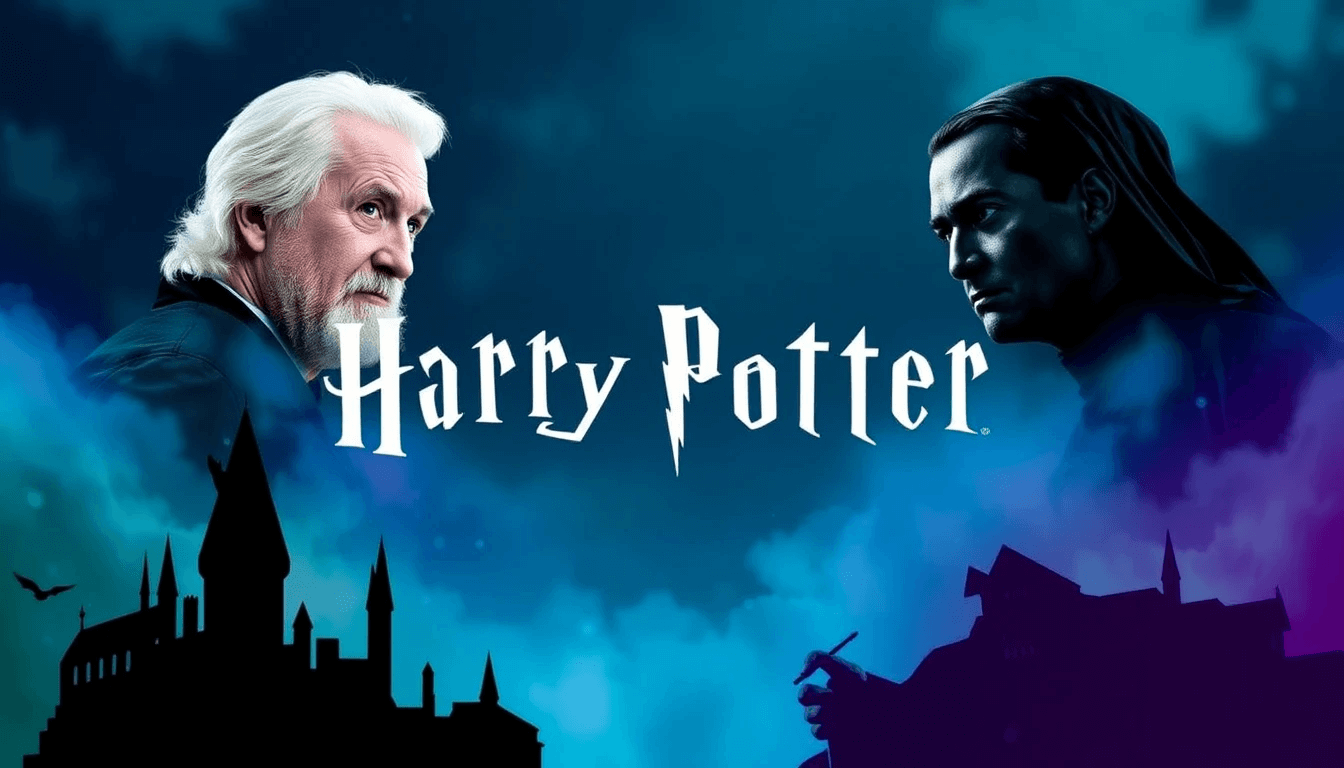
Adaptation Challenges
Creating a new version of Harry Potter means making tough decisions about what to keep from the films and what to reimagine:
Music and Sound
- Should the show use John Williams' iconic themes or create new music?
- How can composers balance nostalgia with fresh creativity?
Visual Style
- Will Hogwarts look like it did in the movies?
- Should the series use more practical effects or modern CGI?
Casting Considerations
- Finding new actors for beloved characters (like Cillian Murphy as a potential Voldemort)
- Creating performances that feel fresh while honoring what fans love
Audience Balance
- The show must appeal to both longtime fans and newcomers
- Deeper exploration of the books can attract both groups
The TV series isn't simply remaking the movies—it's a chance to reinterpret the story with more depth and nuance. You'll likely see a different approach that takes advantage of the extended runtime to explore character motivations and magical concepts more thoroughly.
Creative Ways to Reimagine the Wizarding World
Building Deeper Characters
The TV format offers exciting possibilities for character development that film simply couldn't provide. With more screen time available, characters who were cut or simplified in the movies can now be fully explored. Take Peeves the poltergeist - completely absent from the films despite being filmed for the first movie. His mischievous presence could finally be restored, adding that layer of playful chaos that enriches the magical atmosphere of Hogwarts.
You'll likely see more nuanced portrayals of familiar characters too. The series can take its time to show their growth, internal struggles, and relationships. Even smaller characters might receive proper development, making the wizarding world feel more complete and lived-in than ever before.
Musical Magic: Honoring Tradition or Breaking New Ground
The musical identity of the Harry Potter films presents an interesting challenge for the TV series. John Williams' iconic themes have become inseparable from the wizarding world for many fans. The haunting melodies that play when Harry first sees Hogwarts or the distinct character motifs are embedded in our collective memory.
The series creators face a pivotal choice:
- Keep the classic themes: Provide continuity and instant recognition
- Create entirely new music: Establish a fresh identity for the series
- Blend old and new: Honor the past while forging ahead
This decision will significantly shape how both new viewers and longtime fans connect with the show emotionally.
Sarcasm Because Avada Kedavra Is Illegal Sweatshirt, HP Fan Crewneck, Wizard Shirt, Magic Wand Shirt, Deatheater, BFF Sweatshirt
Show off your wizarding world spirit while keeping it witty and cozy with this fun sweatshirt!
Product information
$18.99
Product Review Score
4.26 out of 5 stars
158 reviewsProduct links
Bringing Magic to Life Visually
The visual approach to the series represents another creative opportunity. The early Potter films relied heavily on practical effects that gave the magic a tangible quality. Today's advanced CGI capabilities could expand what's possible while potentially losing some of that handcrafted charm.
Potential visual approaches:
| Approach | Benefits | Challenges |
|---|---|---|
| Practical effects | Tangible realism, nostalgic feel | Limited in scope, more expensive |
| Modern CGI | Unlimited possibilities, efficiency | May feel less authentic |
| Hybrid approach | Best of both worlds | Requires careful balance |
The series could also reimagine iconic locations like Hogwarts castle. While the familiar silhouette is beloved, a fresh interpretation might help distinguish the series from the films. Every visual choice - from costumes to set design - offers an opportunity to honor what worked while finding new ways to bring this magical world to life.
Casting Discussions
Cillian Murphy as Lord Voldemort: Fan Theories
Many Harry Potter fans are buzzing about potential casting choices for the upcoming TV series, with one name standing out for the role of the Dark Lord. Cillian Murphy has emerged as a popular fan choice to portray Voldemort in the new adaptation.
The idea has gained traction among viewers and even earned praise from Chris Columbus, director of the first two Harry Potter films. When asked about this possibility, Columbus responded enthusiastically, calling Murphy "one of my favorite actors" and suggesting his casting "would be amazing."
What makes Murphy such a compelling choice? His intensity and ability to convey quiet menace could bring a chilling new dimension to the character. You might remember his piercing blue eyes and subtle power from other roles—qualities that could translate perfectly to Voldemort's terrifying presence.
Unlike Ralph Fiennes' memorable film portrayal, Murphy could explore different aspects of the character thanks to the TV format's extended runtime. This isn't about replacing what came before, but reimagining the Dark Lord with new psychological depth and nuance.
The TV series format allows for:
- Deeper exploration of Voldemort's backstory
- More scenes showing his rise to power
- Nuanced portrayal of his psychology
While this remains speculation for now, the possibility showcases how the new series might honor the original films while forging its own path with fresh interpretations of beloved characters.
Respecting the Original Work
Staying True to the Source
The Harry Potter TV series brings a unique opportunity to include content that couldn't fit into the films. The movies faced significant time constraints, forcing directors like Chris Columbus to make difficult cuts. For example, Peeves the poltergeist—a fan-favorite character—was actually filmed for the first movie but ultimately removed due to runtime limitations.
The longer television format allows for:
- More detailed character development
- Including previously cut scenes and characters
- Exploring magical elements more thoroughly
- Deeper emotional storytelling
The extended runtime means viewers can experience more of those small magical moments that make the wizarding world feel real and lived-in. You'll potentially see more interactions between students, more classroom scenes, and those little details that make Hogwarts feel truly magical.
Restricted Section 100% Soy Wax Candle
Bring the magic of Hogwarts into your home with this enchanting soy wax candle
Product information
$29.00
Product Review Score
4.73 out of 5 stars
138 reviewsProduct links
Drawing Both Longtime Fans and Newcomers
The TV adaptation faces the challenge of appealing to two distinct audiences: devoted fans who know every detail of the books and films, and new viewers experiencing the story for the first time.
For longtime fans, the series offers:
- Deeper dives into familiar characters
- Book-accurate scenes never before filmed
- Fresh interpretations of beloved moments
For newcomers, it provides:
- A complete introduction to the wizarding world
- Time to understand magical concepts fully
- Character development that builds gradually
The music represents another balancing act. John Williams' iconic score defined the films, but should the series create something entirely new or reference those familiar melodies? Similar questions arise about visual style—should Hogwarts look the same as in the films?
Casting choices will also be crucial in bridging this gap. Actors like Cillian Murphy (mentioned as a potential Voldemort) could bring fresh interpretations to iconic characters while still honoring what made them memorable.
By staying faithful to the books while offering new perspectives, the TV series can create something that feels both familiar and fresh for all types of viewers.
Story Elements and Debates
How the TV Series Approaches the Main Story
The new Harry Potter TV series has a chance to include details that didn't fit in the movies. This creates exciting possibilities for fans. The longer format allows writers to include characters like Peeves, the mischievous poltergeist who never appeared in the films.
Chris Columbus, who directed the first two Harry Potter movies, actually filmed scenes with Peeves but had to cut them. Now, the TV adaptation can bring these missing elements to life.
The series faces creative choices about music and visuals. Should it use themes similar to John Williams' iconic score or create something new? Will Hogwarts look the same as in the films? Modern CGI effects could blend with practical magic to create a fresh yet familiar world.
Casting will also refresh the story. Some fans support Cillian Murphy as Voldemort, which Columbus called "amazing." The TV format allows deeper exploration of character psychology and motivations.
The Rowling Controversy
The Harry Potter TV series exists in a complicated landscape because of ongoing debates about J.K. Rowling. These discussions may impact how viewers approach the new adaptation.
The series aims to appeal to both longtime fans and newcomers who are just discovering the wizarding world. This balance creates a challenge: honoring the original work while acknowledging the changed context around it.
How the production handles this situation will likely influence public reception. The show must navigate these waters carefully while delivering the magical experience fans expect.
